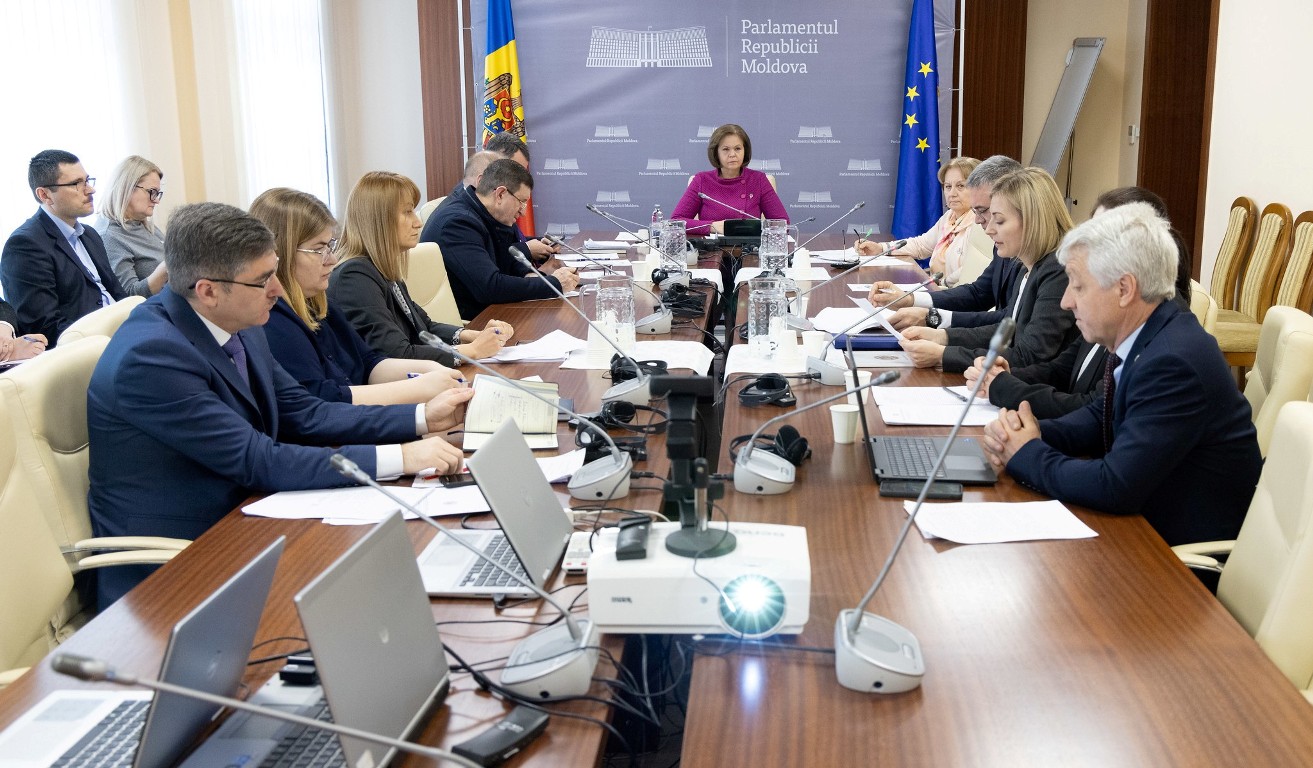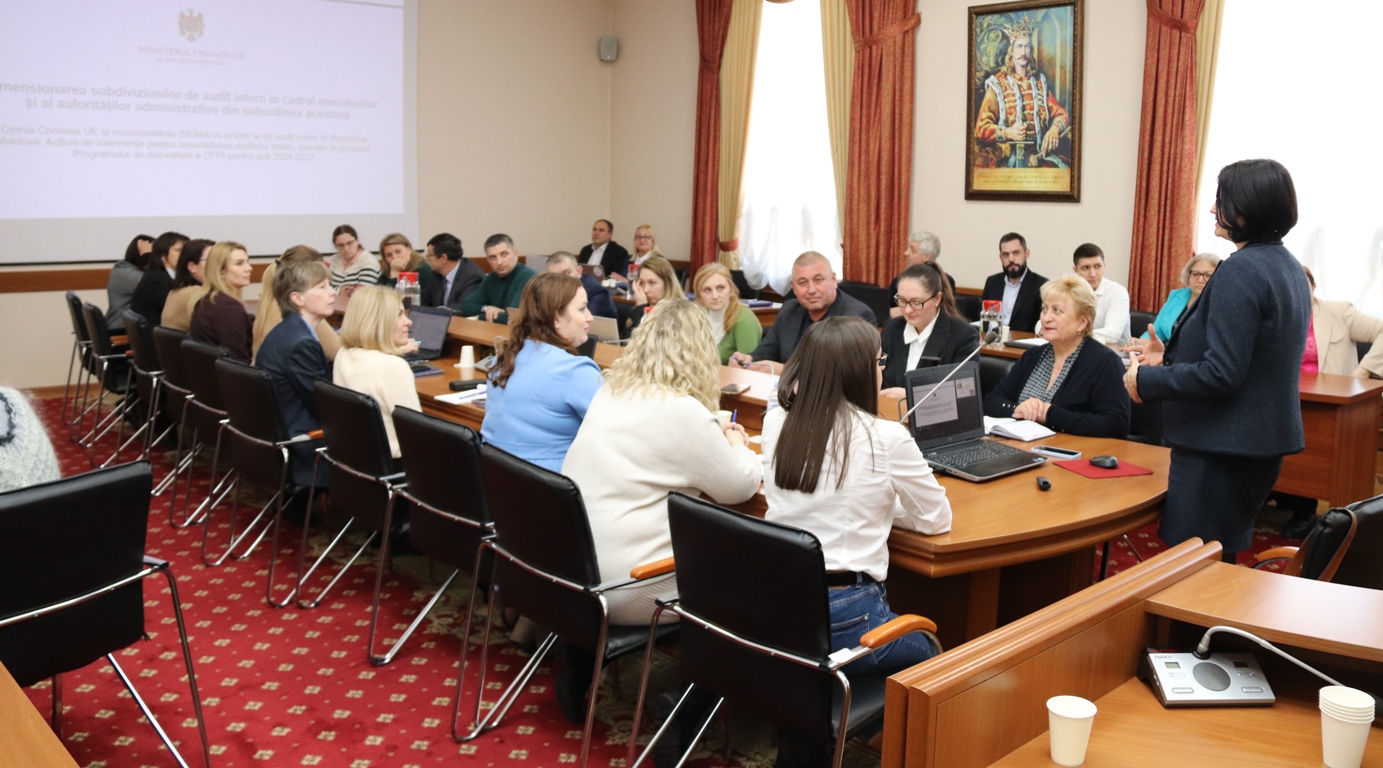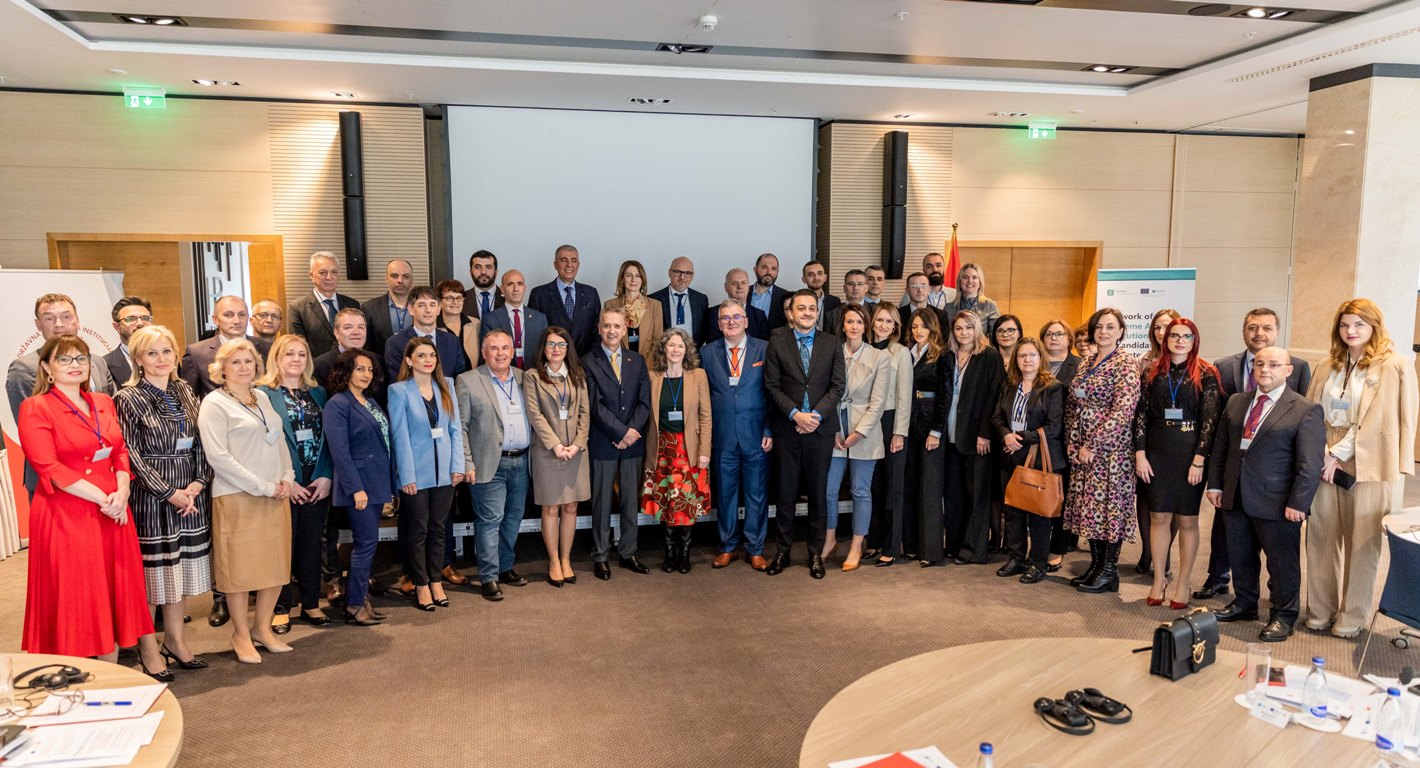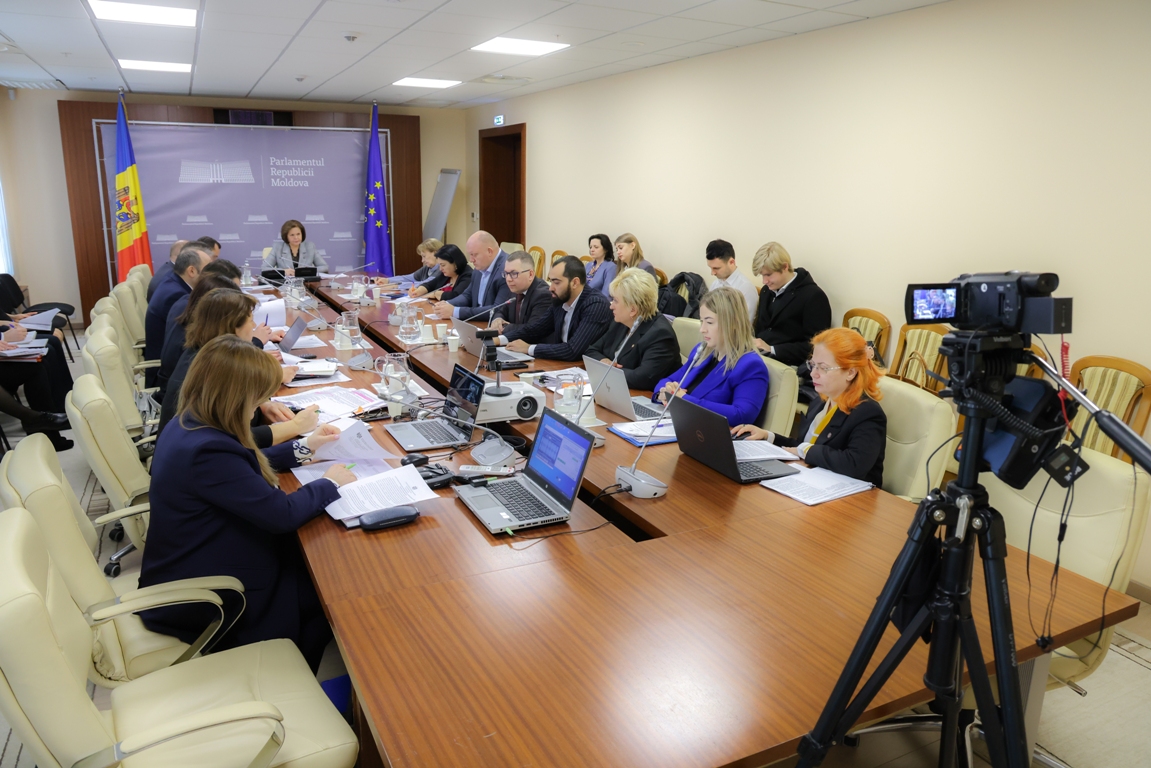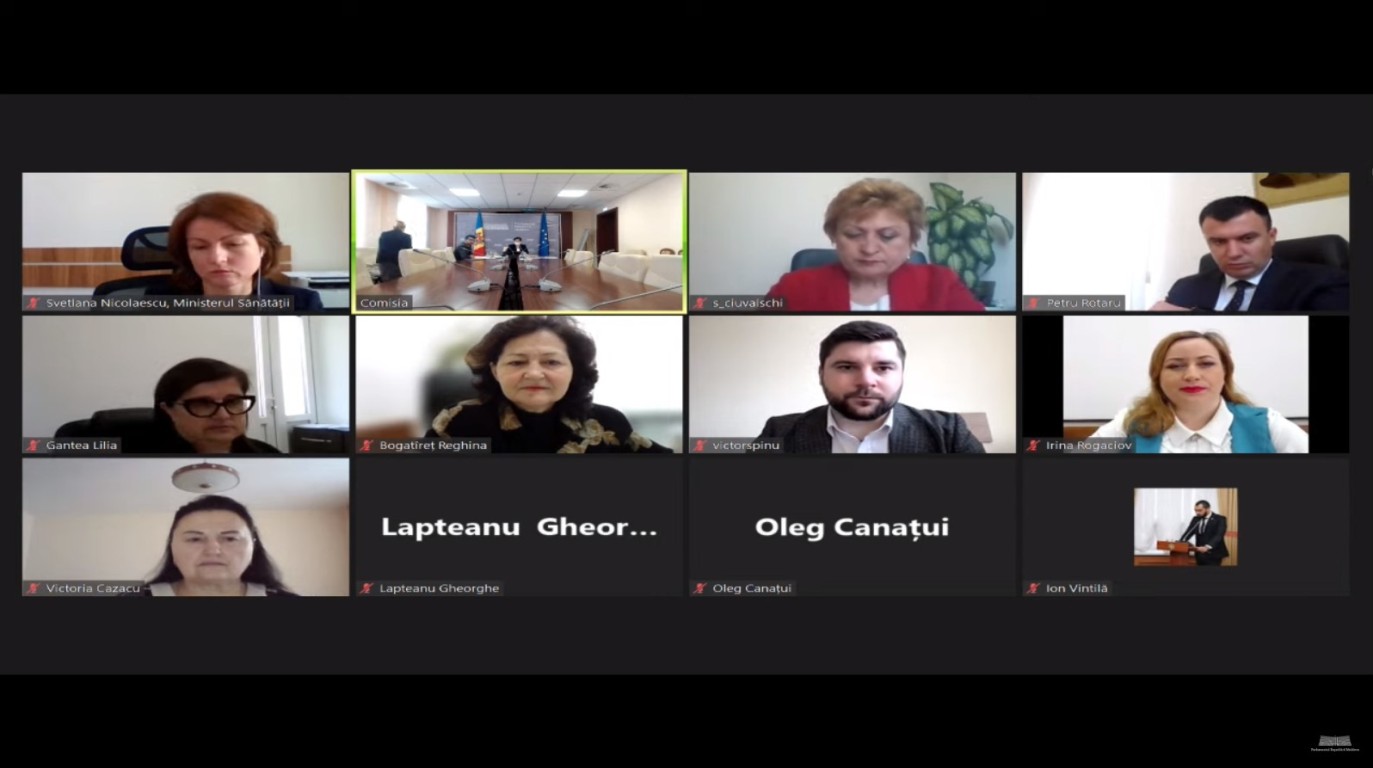
On April 13, the Court of Accounts of the Republic of Moldova presented to the Public Finance Control Committee (PFCC) the Performance Audit Report "Have the competent authorities taken sufficient measures to provide citizens with vaccines and to achieve collective immunity to combat COVID-19 infection?" and the Compliance Audit Report on the implementation of measures to motivate and financially support the staff involved in the prevention, detection and treatment of COVID-19 infection and the measures of surveillance and monitoring of quarantined persons.
The audit team, led by Petru Rotaru, Member of the CoARM informed the PFCC that the audit of the management of the vaccination process aimed to support the entities involved, by identifying deficiencies in the system and areas for improvement, and by strengthening institutional management with compliance with the principles of performance, economy, efficiency and effectiveness.
We mention that, in the context of the pandemic situation, the competent authorities of the Republic of Moldova have taken actions aimed at providing citizens with anti-COVID vaccines. At the same time, they prioritized access to vaccination for certain high-risk population groups, being approved 3 stages of vaccination. The anti-COVID-19 vaccination campaign in Moldova was launched on March 2, 2021.
At the time of the audit, the Republic of Moldova received about 75% of the available vaccines worth 188.3 million lei free of charge. Another 25% were purchased from the available sources within the state budget, government emergency funds, compulsory health insurance funds, as well as through bilateral agreements with producers or international partners. Thus, until November 30, about 2 million doses of vaccine were received and over 1.6 million doses were administered, the vaccine coverage being at a level of 27% from the country's population. At present, vaccination coverage has exceeded 31%.
The audit focused on the analysis and evaluation of the entire process carried out by the parties, and included the institutions involved in organizing the vaccination process and 13 public medical institutions with 89 subdivisions.
The CoARM’s auditors revealed the following audit findings:
- the accompanying documents relating to the distribution of vaccine doses to medical institutions do not contain complete information on the batch and series of vaccines and the expiry date, creating premises for erroneous reflection of the distribution and record of vaccines by type;
- the calculation of the loss factor for vaccine doses has been regulated by an out-of-date regulatory framework that does not meet the requirements, thus not accurately estimating vaccine losses, based on the actual number of doses used in relation to the number of vaccinated persons;
- the registration in the information system of the administration of the doses of vaccines with expired validity term denotes risks and creates suspicions regarding their use in 6804 cases.
Some health institutions and health centers have registered vaccinations in manual registers, with subsequent introduction in AIS-RVC-19. The audit found that the batch of vaccine administered and the date of vaccination registration were identical and correctly indicated in both types of registers (manual and electronic), but the expiration date of the vaccine administered is exceeded by 5, 19, 28 days, etc. This situation has created additional suspicions about the veracity of the data.
Regarding the procurement procedures of the vaccines, it is clear that they were organized and carried out on the basis of the principles of effectiveness, however the process of their use indicates non-compliance with economy.
In conclusion, the Court of Accounts notes that the authorities and institutions involved in the immunization process, in some cases, have not demonstrated responsibility to ensure the effective achievement of the objectives of the National Anti-COVID-19 Immunization Plan to achieve collective immunity. The process of systematizing, monitoring and managing immunization information needs to be improved, although it has taken place in exceptional circumstances. Finally, the Court of Accounts issued 8 recommendations to improve the vaccination process.
With regard to the Compliance Audit Report on the implementation of measures to motivate and support the staff involved in the prevention, detection and treatment of COVID-19 infection and the measures of surveillance and monitoring of quarantined persons, the auditors highlighted several findings.
To address the challenges posed by the pandemic, the Parliament, the Government and the specialized central public authorities have adopted a number of systemic measures, including the motivation and financial support of staff involved in the prevention, detection and treatment of COVID-19 infection.
In the context of support and motivation measures, during the years 2020-2021, considerable financial resources have been allocated:
- over 708 million lei for motivating the staff involved in achieving the professional performance indicator “Providing medical care to patients with COVID-19;
- about 7.5 million lei for granting salary increases to compensate for the performance of work in conditions of increased risk for health;
- over 331 million lei for the granting of the single indemnity of 16 thousand lei;
- 7 million lei for the payment of the single indemnity of 100 thousand lei.
The auditors informed the Parliamentary Committee about the shortcomings in the process of motivating staff to provide healthcare to patients with COVID-19:
- the managers of the primary medical institutions had a non-uniform approach to motivating the categories of staff involved in providing medical care to persons suspected or infected with COVID-19;
- The managers of 4 hospital medical institutions, out of 8 audited, did not ensure the orderly appointment of the staff directly involved in the treatment of infected patients, which led to erroneous reporting, as well as the request and allocation from the Compulsory Health Insurance Funds of the amount of 12,8 million lei;
- some institutions have non-transparently organized the process of evaluating the indicator of professional performance and the increase of compensation for work performed in conditions of increased risk for health, illegally granting financial means in the amount of 29.2 million lei;
- 3 district hospitals paid 18.4 million lei in the absence of orders from the managers regarding the monthly establishment of incentives for motivating employees involved in providing medical care to patients with COVID-19.
At the same time, the audit found irregularities in the establishment of the single indemnity in the amount of 16,000 thousand lei, not being regulated the way of documenting, requesting, examining and establishing the indemnity. The Ministry of Finance could not establish whether the non-medical employees of the budgetary authorities or institutions, who received the single allowance, became infected during the exercise of their duties.
Also, during the meeting, were discussed the deficiencies in the monitoring process of the persons in self-isolation and quarantine regime. Thus, the subdivisions of the Ministry of Internal Affairs did not have enough information about the persons in self-isolation regime. This has led to a low level of verification of compliance with the requirements of these schemes. Also, the ascertaining agents did not perform their duties efficiently, in the process of monitoring the quarantined persons. Thus, the discipline of the offenders was not ensured and the related sanctions were not applied.
In conclusion, the Court of Accounts noted that the public authorities have established and regulated the necessary measures and activities, for which public means of stimulating and financially supporting employees involved in the process of treating infected persons and those involved in monitoring people in self-isolation or quarantine. At the same time, these measures were accompanied by ambiguities and non-compliances, caused by the lack of experience in managing the pandemic situation, the insufficiency of regulations, the lack of interconnection of information systems, etc.
 WITH DEFICIENCES OF VIEW
WITH DEFICIENCES OF VIEW Youtube
Youtube Facebook
Facebook


 print
print